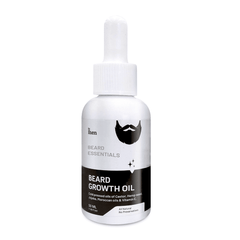Vitamin D: Health Benefits, Dosage and Side Effects

Several clinical studies identified that Vitamin D deficiency is associated with Erectile Dysfunction in men. Vitamin D supplementation is known to improve sexual performance by aiding testosterone biogenesis.
Adequate vitamin D and calcium help protect against osteoporosis in elderly men and postmenopausal women.
Some studies have shown that vitamin D supplementation can improve sexual functioning and increase testosterone levels in men who are vitamin D deficient.
It is recommended that Indian men should take at least 10 mcg (400 IU) per day of vitamin D, which can come from food, exposure to sunlight, supplements, or a combination of these. Having too much or too little can be dangerous for your health.
Vitamin D supplements can interact with certain medications. Talk to your healthcare provider before taking vitamin D if you are already taking cholestyramine, corticosteroids, orlistat, or seizure medications. Talk to your healthcare provider if you are concerned about any side effects you experience.
What is Vitamin D?
Vitamin D is required for the regulation of the minerals calcium and phosphorus found in the body. It also plays an important role in maintaining proper bone structure.
Sun exposure is an easy, reliable way for most people to get vitamin D. Exposure of the hands, face, arms, and legs to sunlight 2-3 times a week for about one-fourth of the time it would take to develop a mild sunburn will cause the skin to produce enough vitamin D. The necessary exposure time varies with age, skin type, season, time of day, etc. Just six days of casual sunlight exposure without sunscreen can make up for 49 days of no sunlight exposure. Body fat acts like a kind of storage battery for vitamin D. During periods of sunlight, vitamin D is stored in fat and then released when sunlight is gone.
Older people are also at risk for vitamin D deficiency. They are less likely to spend time in the sun, have fewer “receptors” in their skin that convert sunlight to vitamin D, may not get vitamin D in their diet, may have trouble absorbing vitamin D even if they do get it in their diet, and may have more trouble converting dietary vitamin D to a useful form due to kidney problems. In fact, some scientists suggest that the risk for vitamin D deficiency in people over 65 years of age is very high.
Vitamin D supplements may be necessary for older people, people living in northern latitudes, and for dark-skinned people who need extra time in the sun. Talk to your health care provider about whether a supplement is best for you.
Health Benefits of Vitamin D
- Reduced risk of osteoporosis, falls, and fractures(1)
- Better strength(2)
- Improved male sexual function and sperm health(9)
- Reduce the risk of cancer(3,4)
- Depression management(5)
- Reduced risk of type 1 diabetes(6)
- Improved mortality(7,8)
Symptoms of Vitamin D Deficiency
Vitamin D deficiency is one of the most common nutrient deficiencies in majority of the population worldwide. Overall, vitamin D deficiency is a silent epidemic. The symptoms are usually subtle and may take years or decades to surface.
Older adults are at a much greater risk of being deficient(10). One study showed that 96% of people who had experienced heart attacks were low in vitamin D(11).
The most well-known symptom of vitamin D deficiency is rickets, a bone disease common in children in developing countries. Rickets has been mostly eliminated from Western countries because of the fortification of some foods with vitamin D(12).
Deficiency is also linked to osteoporosis, reduced mineral density, and increased risk of falls and fractures in older adults(13).
Studies indicate that people with low vitamin D levels have a much greater risk of heart disease, diabetes (types 1 and 2), cancer, dementia, and autoimmune diseases like multiple sclerosis(14).
Finally, vitamin D deficiency is linked to a reduced life expectancy(15-17).
That said, it’s unclear whether deficiency contributes to these diseases or whether people with low levels are just more likely to get them(18,19).
Dosages of Vitamin D have been studied
- For vitamin D deficiency: 50,000 IU per week for 6-12 weeks has been used. However, some patients require higher doses for longer periods of time to maintain optimal blood levels of vitamin D.
- For preventing osteoporosis: 400-1000 IU/day of vitamin D has been used in older adults. Usually it is taken along with 500-1200 mg of calcium per day. Some experts recommended higher doses of 1000-2000 IU daily, and 0.43-1.0 mcg/day of calcitriol have been used for up to 36 months.
- For preventing bone loss due to use of corticosteroids: 0.25-1.0 mcg/day of vitamin D in forms known as calcitriol or alfacalcidol have been used for 6-36 months. In many cases, these forms of vitamin D are used along with calcium. Also, 50-32,000 mcg/day of vitamin D in the form of calcifediol has been used for 12 months. Finally, 1750-50,000 IU of vitamin D has been taken in daily or weekly doses for 6-12 months.
- For heart failure: 800 IU/day of vitamin D has been taken alone or along with 1000 mg/day of calcium for 3 years. 400 IU/day of vitamin D has been taken with 1000 mg/day of calcium in postmenopausal women.
- For bone loss caused by having too much parathyroid hormone (hyperparathyroidism): 800 IU/day of vitamin D has been used for 3 months.
- Multiple sclerosis (MS): 400 IU/day of vitamin D has been used to prevent MS.
- For preventing respiratory tract infections: 300-4000 IU of vitamin D has been used for 7 weeks to 13 months.
- For preventing tooth loss in the elderly: 700 IU/day of vitamin D has been taken in combination with calcium 500 mg/day for 3 years(18).
In what forms Vitamin D is available?
- Vitamin D3 (cholecalciferol): Found in some animal foods, like fatty fish and egg yolks.
- Vitamin D2 (ergocalciferol): Found in some plants, mushrooms, and yeasts.
How does ForMen offer Vitamin D
Several clinical studies identified that Vitamin D deficiency is associated with Erectile Dysfunction in men. Vitamin D supplementation is known to improve sexual performance by aiding testosterone biogenesis.
What are the Side Effects of Vitamin D
When taken by mouth: Vitamin D is LIKELY SAFE when taken by mouth in recommended amounts. Most people do not commonly experience side effects with vitamin D, unless too much is taken. Some side effects of taking too much vitamin D include weakness, fatigue, sleepiness, headache, loss of appetite, dry mouth, metallic taste, nausea, vomiting, and others. Taking vitamin D for long periods of time in doses higher than 4000 units (100 mcg) daily is POSSIBLY UNSAFE and may cause very high levels of calcium in the blood. However, much higher doses are often needed for the short-term treatment of vitamin D deficiency. This type of treatment should be done under the supervision of a healthcare provider(18).
Does Vitamin D Interact with Other Drugs?
Moderate Interaction
- Aluminum interacts with VITAMIN D
- Calcipotriene (Dovonex) interacts with VITAMIN D
- Digoxin (Lanoxin) interacts with VITAMIN D
- Diltiazem (Cardizem, Dilacor, Tiazac) interacts with VITAMIN D
- Verapamil (Calan, Covera, Isoptin, Verelan) interacts with VITAMIN D
- Water pills (Thiazide diuretics) interacts with VITAMIN D
Minor Interaction
- Be watchful with this combination
- Cimetidine (Tagamet)
- Heparin
- Low molecular weight heparins (LMWHS)
Sources:
- Rizzoli R, Boonen S, Brandi M-L, Bruyère O, Cooper C, Kanis JA, et al. Vitamin D supplementation in elderly or postmenopausal women: a 2013 update of the 2008 recommendations from the European Society for Clinical and Economic Aspects of Osteoporosis and Osteoarthritis (ESCEO). Current Medical Research and Opinion. 2013 Apr;29(4):305-13.
- Tomlinson PB, Joseph C, Angioi M. Effects of vitamin D supplementation on upper and lower body muscle strength levels in healthy individuals. A systematic review with meta-analysis. Journal of Science and Medicine in Sport. 2015 Sep;18(5):575-80.
- Garland CF, Gorham ED, Mohr SB, Garland FC. Vitamin D for Cancer Prevention: Global Perspective. Annals of Epidemiology. 2009 Jul;19(7):468-83.
- Lappe JM, Travers-Gustafson D, Davies KM, Recker RR, Heaney RP. Vitamin D and calcium supplementation reduces cancer risk: results of a randomized trial. The American Journal of Clinical Nutrition. 2007 Jun 1;85(6):1586-91.
- Shaffer JA, Edmondson D, Wasson LT, Falzon L, Homma K, Ezeokoli N, et al. Vitamin D Supplementation for Depressive Symptoms: A Systematic Review and Meta-Analysis of Randomized Controlled Trials. Psychosomatic Medicine. 2014 Apr;76(3):190-6.
- Hyppönen E, Läärä E, Reunanen A, Järvelin M-R, Virtanen SM. Intake of vitamin D and risk of type 1 diabetes: a birth-cohort study. The Lancet. 2001 Nov;358(9292):1500-3.
- Autier P. Vitamin D Supplementation and Total MortalityA Meta-analysis of Randomized Controlled Trials. Arch Intern Med. 2007 Sep 10;167(16):1730.
- Schottker B, Jorde R, Peasey A, Thorand B, Jansen EHJM, Groot L d., et al. Vitamin D and mortality: meta-analysis of individual participant data from a large consortium of cohort studies from Europe and the United States. BMJ. 2014 Jun 17;348(jun17 16):g3656-g3656.
- Tirabassi G, Sudano M, Salvio G, Cutini M, Muscogiuri G, Corona G, et al. Vitamin D and Male Sexual Function: A Transversal and Longitudinal Study. Int J Endocrinol. 2018;2018:3720813.
- Linnebur SA, Vondracek SF, Vande Griend JP, Ruscin JM, McDermott MT. Prevalence of vitamin D insufficiency in elderly ambulatory outpatients in Denver, Colorado. The American Journal of Geriatric Pharmacotherapy. 2007 Mar;5(1):1-8.
- Lee JH, Gadi R, Spertus JA, Tang F, O’Keefe JH. Prevalence of Vitamin D Deficiency in Patients With Acute Myocardial Infarction. The American Journal of Cardiology. 2011 Jun;107(11):1636-8.
- Holick MF. Resurrection of vitamin D deficiency and rickets. J Clin Invest. 2006 Aug;116(8):2062-72.
- Geddes JAA, Inderjeeth CA. Evidence for the treatment of osteoporosis with vitamin D in residential care and in the community dwelling elderly. Biomed Res Int. 2013;2013:463589.
- Holick MF, Chen TC. Vitamin D deficiency: a worldwide problem with health consequences. The American Journal of Clinical Nutrition. 2008 Apr 1;87(4):1080S-1086S.
- Zittermann A, Prokop S. The Role of Vitamin D for Cardiovascular Disease and Overall Mortality. In: Sunlight, Vitamin D and Skin Cancer [Internet]. New York, NY: Springer New York; 2014 [cited 2020 Nov 11]. p. 106-19. Available from: http://link.springer.com/10.1007/978-1-4939-0437-2_6
- Pilz S, Dobnig H, Tomaschitz A, Kienreich K, Meinitzer A, Friedl C, et al. Low 25-Hydroxyvitamin D Is Associated with Increased Mortality in Female Nursing Home Residents. The Journal of Clinical Endocrinology & Metabolism. 2012 Apr;97(4):E653-7.
- Braun A, Chang D, Mahadevappa K, Gibbons FK, Liu Y, Giovannucci E, et al. Association of low serum 25-hydroxyvitamin D levels and mortality in the critically ill*: Critical Care Medicine. 2011 Apr;39(4):671-7.
- https://www.webmd.com/vitamins/ai/ingredientmono-929/vitamin-d.
- https://www.healthline.com/nutrition/vitamin-d-101#deficiency.
Disclaimer: The information provided on this page is not a substitute for professional medical advice, diagnosis, or treatment. If you have any questions or concerns about your health, please talk to a healthcare professional.







Leave a comment